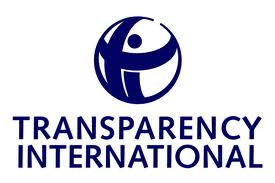 JAPAN, NEW ZEALAND LAST MAJOR ECONOMIES YET TO RATIFY GLOBAL DEAL
JAPAN, NEW ZEALAND LAST MAJOR ECONOMIES YET TO RATIFY GLOBAL DEAL
Transparency International today welcomed the German parliament’s move to ratify the 2003 United Nations Convention against Corruption, considered the global anti-corruption standard. The anti-corruption group called for the remaining 21 countries yet to ratify to do so forthwith.
Germany, Japan and New Zealand are the last industrial economies yet to commit to the basic step to preventing corruption, along with Syria, Chad and North Korea. Germany and Japan signed the convention on 9 December 2003, New Zealand the next day. Germany will be the 173rd country to have ratified the Convention.
German ratification was delayed by parliamentarians’ reluctance to relinquish rights under legislation on bribery of members of parliament. Under the convention, parliamentarians fall under the category of public officials. Germany has been the only EU country yet to ratify since 29 November 2013, when the Czech Republic ratified.
“It was high time for Germany to ratify the UN Convention, but we are glad that this important step has finally been taken. We now expect the German government to use its position to make sure that the process for reviewing whether governments meet their anti-corruption commitments are robust,” said Edda Müller, Chair of Transparency International Germany.
Following passage of the bill ratifying the convention in the German parliament (Bundestag) today, German ratification will be complete once it passes the Federal Council (Bundesrat) and a ratifying document is deposited at the UN.
The UN Convention against Corruption obliges countries to pass a basic set of laws ensuring transparency and making corruption a crime, and allows cooperation between authorities against corruption and money laundering. Germany’s ratification will help it bring the corrupt to justice, Transparency International said.
It is important that Germany as a major economy shows its commitment to stopping corruption, Transparency International said. Germany accounts for 8.2% of world exports. In 2012 a letter from more than 30 German CEOs warned that failure to ratify was harming the country’s reputation overseas.
Call on Germany to show anti-corruption leadership
To show that this move marks a new proactive approach, Transparency International said Germany should get behind proposed changes to EU money laundering rules put forward by the European Parliament in April. The new measures would oblige governments to create public company registers including “beneficial ownership” information. EU governments will discuss the proposed changes to the money laundering directive with European Parliament representatives in talks this October.
The failure of Japan and New Zealand to ratify a convention already ratified by 172 other countries sends the wrong message to partners about their willingness to fight corruption, Transparency International said. Neither country has completed a single major investigation of a company bribing foreign governments in the last four years, compared to 11 in Germany. Japan accounts for 4 per cent of world exports. Japanese ratification has been blocked because necessary amendments to criminal law have not been agreed by parliament.
“We urge the Japanese government to move rapidly to catch up with the rest of the world, and meet the commitments it has already taken as a member of the G20. This is something that Japanese companies also want,” said Aki Wakabayashi, Chair of Transparency International Japan.
